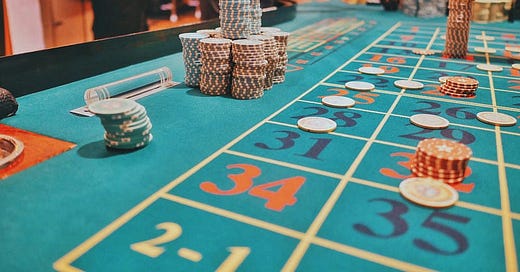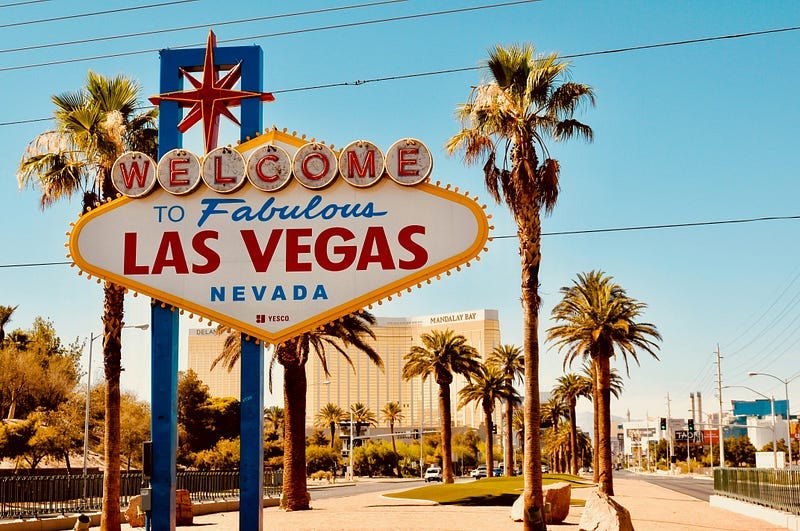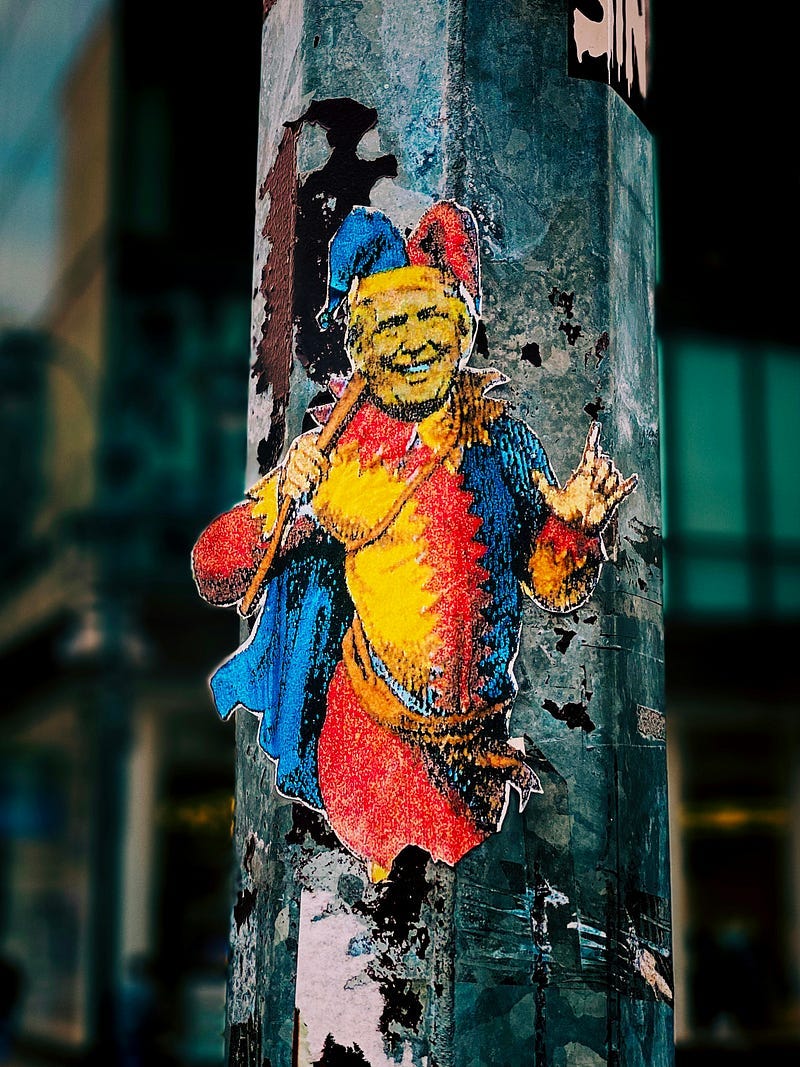How Trump Bankrupted Four Casinos
Was he an idiot ruined by his own greed and incompetence, or an unlucky man in a surprisingly tough industry?
Donald Trump is an extraordinarily divisive man, and few things about him are more controversial than his image as a successful business tycoon. We can all agree that he is crass, thin-skinned and vain, but does he at least know how to run a business?
His supporters would say, “Obviously — he’s a billionaire!” He controls a vast array of commercial interests, including hotels, apartments, golf courses and TV shows. He has been one of America’s highest-profile businessmen for decades, and continues to regularly roll out tacky but lucrative schemes like Trump-branded Bibles, sneakers and cryptocurrencies. Sure, sometimes he has been a bit cutthroat — but who becomes rich without stiffing their contractors or dodging some taxes here and there?
Then to his detractors, Trump is a buffoon of cartoonish proportions. Yes, he’s a billionaire, but only because he inherited The Trump Organization from his billionaire father, Fred Trump, who was the real brain and business acumen of the family. Donald, by contrast, filed for bankruptcy 6 times in the 90s and 2000s. He was seemingly more successful as a reality TV personality than as the sort of old-school, deal-making businessman that he likes to portray himself as.

One failure in particular seems to grind people’s gears: the bankruptcy of three Atlantic City casinos (the 4th one was an Indiana riverboat casino). What sort of idiot bankrupts a casino? A casino should be a license to print money — the house always wins!
The reality is not quite so simple. Obviously, a casino must always stack the odds in its favour on the gaming floor, but this is just like claiming that a shop can never go out of business because it sells bread and milk for a higher price than it buys them. Shops do go out of business regularly, and so do casinos. In Vegas alone, the 20 years pre-Covid saw bankruptcy filings from the Aladdin (2001), the Terribles chain (2009), Riviera (2010), Caesars (2015) and Lucky Dragon (2018), as well as a murky affair involving MGM Entertainment in which it posted heavy losses between 2008–2015 and was forced to sell flagship properties like the Bellagio, Mandalay Bay and the MGM Grand to secure quick cash, continuing to operate them but paying rent to the new owners.
The situation in Atlantic City is much worse than in Vegas. “America’s Playground” is stuck in a long death spiral of crime, poverty, and business failure. That said, Trump knew all this when he opened the casinos. He figured he could make a killing, and he was wrong. Should we take that as proof of his business incompetence? Well … it’s complicated.
A shop might go out of business because a cheaper supermarket opens up nearby, because it keeps getting robbed, because road changes reduce its foot traffic, or because the electricity bills become too high. But what drives a casino to bankruptcy?
Casinos are incredibly expensive to build and maintain. You need a large, opulent building full of costly machines and furnishings, staffed by expensive union labor, and aggressively advertised to attract customers in a city filled with competing casinos. If casinos were indeed a license to print money, these up-front costs wouldn’t be such a huge problem; but casinos are much riskier than the general public realizes, so getting $1 billion in cash to launch one can be very tricky.
Getting a casino license is very difficult, and regulators know that ruinous loans are one of the most common reasons for casino failure. Rich people do not stay rich by risking their own money, but getting cheap finance for a casino isn’t easy. Trump got his Atlantic City casino licenses through an interesting tactical manoeuvre: he lied through his teeth. Trading on his image as a tycoon with a Midas touch, he convinced regulators that the banks would cheerfully grant him low-interest loans to build the casinos. When the regulators were stupid enough to believe him and grant the licenses, he funded the construction through junk bonds at interest rates of up to 14%.
This overleveraging was so disastrous that the casinos were essentially doomed to fail, but there were lots of other managerial and situational factors that made the situation even worse.
To begin with, Trump started his Atlantic City casino empire in the 1980s. It was the Japanese economic miracle, and China was opening up to capitalism. High-rolling Asian businessmen were every casino’s dream customer. Trump did realize the value of the demographic, setting up Japanese and Chinese-speaking concierge desks in his properties and reaching out to notorious high-spenders like Akio Kashiwagi. However, all of his efforts couldn’t compensate for the fact that New Jersey seemed somewhat remote for businessmen who were typically flying from Tokyo to LAX.
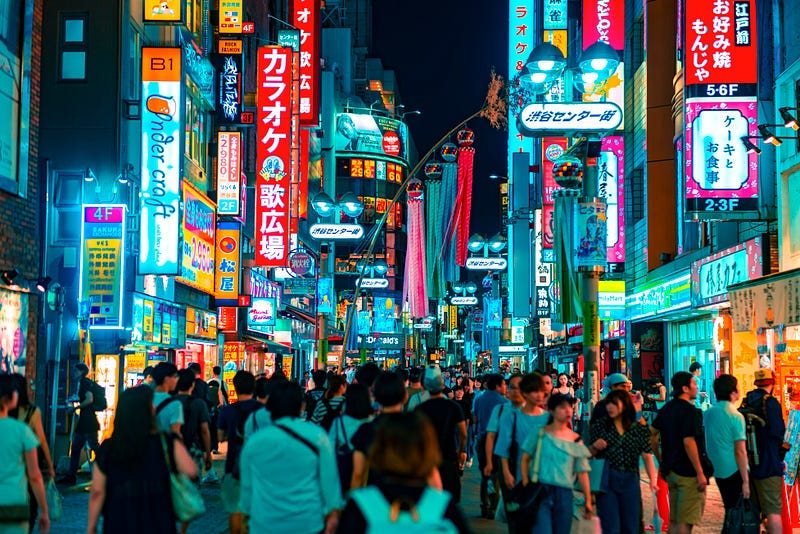
Time and location shafted Trump in an even bigger way: Indian casinos. The effective legalization of large-scale gambling on Native American reservations in 1988 had devastating impacts on Atlantic City, since many of the largest Native casinos (Foxwoods Resort, Mohegan Sun) would be established in nearby New England states like Connecticut, which directly competed with Atlantic City for gamblers.
Not that Trump needed help splitting up the gambling pie into smaller slices: he managed to cannibalize plenty of profit all by himself by opening 3 Trump casinos in close proximity.
This isn’t necessarily as stupid as it sounds: there are economies of scale to be gained (shared marketing, loyalty programs, food procurement), and the 3 casinos could have targeted different market segments (e.g bus-tour pensioners vs high-rollers) or diverse aesthetics. But Trump was too tasteless and egotistical to differentiate his casinos from each other effectively. Everything he owns has the same style: loud, gold and tacky; a poor man’s idea of what exclusivity looks like.
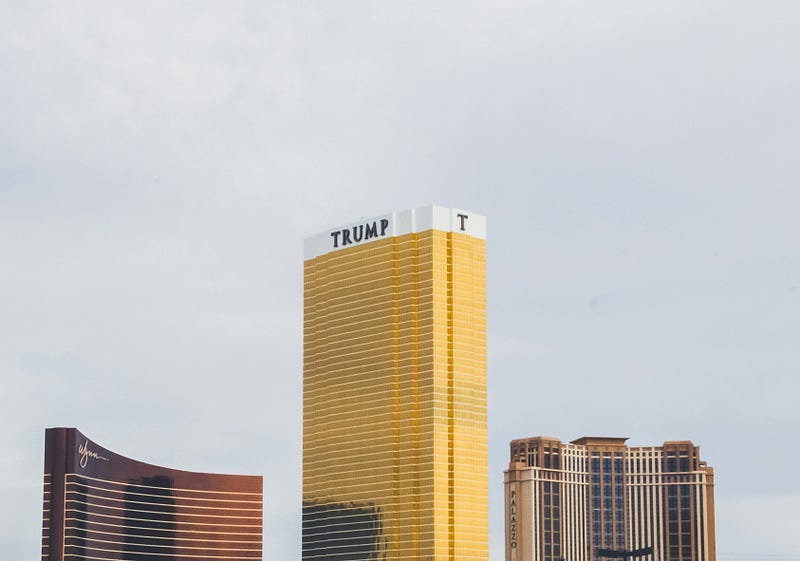
In addition to all of these big-picture strategic mistakes, Trump was a notoriously poor operational manager. He was known to anxiously hang over tables with high-spending gamblers, clearly afraid that they would win, which is not how you continue to attract high-rollers. On the opening night of the Taj Mahal, the most expensive casino ever built, the slot machines malfunctioned due to shoddy installation; hallways supposed to have marble columns had been covered by pink wallpaper; room curtains would not close, and keys didn’t match the doors for weeks after the grand opening.
So that all settles it — Trump is a bad businessman … right?
But here’s the funny thing: Trump did make money, even as he ran his casinos into the ground. He invested with other people’s capital, took cash upfront for constructing sub-par buildings, demanded high-profit shares and management fees for little more than using his name, and escaped like Houdini when things went wrong. All of this was disastrous for contractors, shareholders, banks, and Atlantic City itself — but if the measure of a good businessman is their ability to make money, Trump showed in Atlantic City that he was a decent businessman, albeit a morally bankrupt one.

